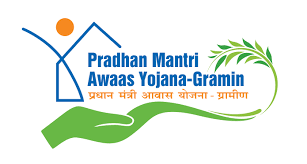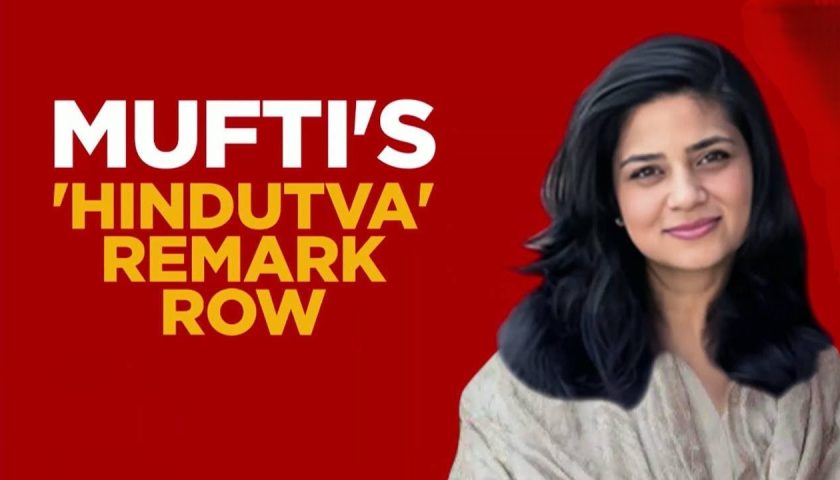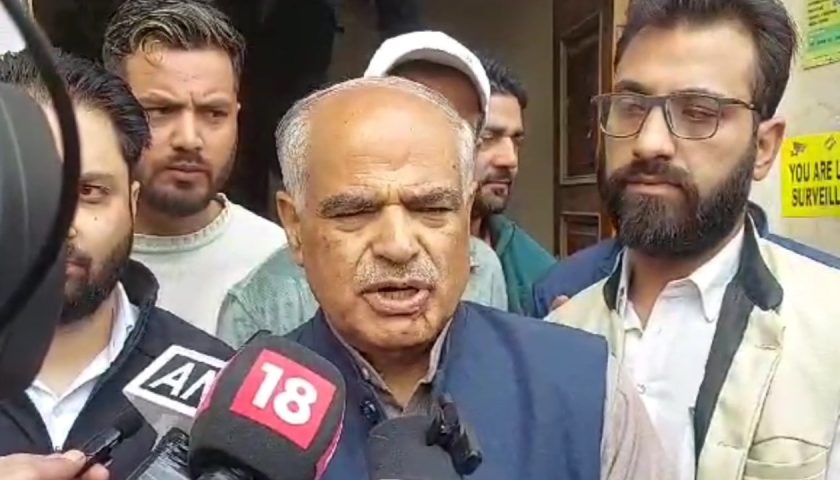The Jammu and Kashmir administration on Wednesday said no outsider was being allotted land and there was no change in the law, hours after PDP chief Mehbooba Mufti alleged that its move to provide housing to homeless people was an attempt to change the demography of the Union territory.
Lieutenant governor Manoj Sinha on Monday said the Jammu and Kashmir administration has started providing 150 square yard plots to landless families for the construction of their houses under the Pradhan Mantri Awas Yojna (PMAY).
“The rural development department has identified 1.83 lakh families who do not have their own houses. We are working on it. It is a step that will not only provide a house to them but transform their lives,” he had said, claiming that plots to 2,711 landless families across the union territory have already been allotted.
At a press conference earlier on Wednesday, Mehbooba, the former chief minister of J-K, accused the LG’s administration of importing slums and poverty into the erstwhile state under the pretext of providing housing to homeless people. She called it an attempt to change the demography of the Union territory.
“The LG made an announcement about giving land to 1.99 lakh landless people in J-K. Doubts and concerns have come to the fore as to who these landless people in Jammu and Kashmir are. According to the figures of the central government placed before Parliament, there are only 19,000 homeless families in Jammu and Kashmir,” Mehbooba told reporters here.
Hours later, an official spokesman said, “The statement of Ms Mufti that government is allotting land to two lakh odd persons is factually incorrect and all statements made by her are without having any understanding of the PMAY scheme and Revenue laws of the J-K which permit allotment of land to landless, for housing purposes.”
”So, neither any change in the law has been made, nor any outsider is being allotted land,” he added. The spokesman said PMAY (Grameen) phase-1 started on April 1, 2016, in which 2,57,349 houseless cases were identified in J-K in SECC data 2011 and after due verification by Gram sabhas, 1,36,152 cases were sanctioned for J-K under the overall commitment of the prime minister for “Housing for all by 2022”.
“Per unit assistance of ₹1.30 lakhs is provided per house by the Government of India under the scheme. Minimum size of the house prescribed is 1 marla,” he said in a statement.
The government conducted Awaas plus survey during January 2018 to March 2019 to identify those beneficiaries which claimed to have been left out under the 2011 SECC, he said.
The spokesman said the data of beneficiaries captured through Awaas plus was utilised to fill the gaps between overall target and eligible beneficiaries made available from SECC Permanent Wait List (PWL).
PMAY Phase-II (AWAS Plus) Grameen started from 2019 onwards based on survey of 2018-19, done pan India, in which 2.65 lakh houseless cases were recorded in J-K and only a target of 63,426 houses was given to J-K. These houses have been sanctioned in 2022 only, he added.
This phase of the scheme is getting over on March 31 next year. Based on good performance of J-K in sanction and completion of houses, on May 30 this year, 1,99,550 more PMAY Awas Plus houses have been sanctioned as a special dispensation in order to ensure housing for all 2.65 lakhs houseless people, who were part of PWL 2019, the spokesman said.
Survey is based on clear guidelines on the basis of the criteria which includes all houseless, those living in zero, one or two room kachha houses, multi-layered prioritisation as defined in section 4 of the scheme guidelines, he said.
The criteria also includes those houseless persons who do not have land or clear title of land or have that category of land where construction is not permitted, could not be sanctioned house, even if they are part of this PWL, the spokesman said.
Based on the field level survey, out of 1,99,550, 2,711 cases were identified who do not have clear title of land and fall in categories of people residing on state land, people residing on forest land, people residing in rakhs and rarms land, where construction is not permitted, people sitting on custodian land, land allotted to displaced people by government near Dachigam Park for agriculture purpose, where construction is not permitted, and any other category of cases who are otherwise eligible for housing but do not have any land available for construction, he said.
As the government cannot sanction house to someone who does not have land, therefore, in order to ensure housing for all, the government has taken a policy decision to allot five marlas of land to these 2,711 cases so that they can get houses, the spokesman said.
These 2,711 cases are part of the 2018-19 PWL of houseless persons of J-K, who were debarred from having a house, just because either they did not have land or the land they have is state/forest/any other category of land where construction is not permitted, he said.
Data being quoted by the PDP president is of the Housing and Urban Affairs, while the PMAYG scheme is of the Ministry of Rural Development for rural areas of J-K, the spokesman said.






